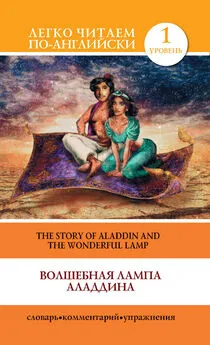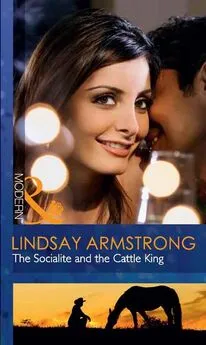Jean Plaidy - To Hold the Crown: The Story of King Henry VII and Elizabeth of York
- Название:To Hold the Crown: The Story of King Henry VII and Elizabeth of York
- Автор:
- Жанр:
- Издательство:неизвестно
- Год:неизвестен
- ISBN:нет данных
- Рейтинг:
- Избранное:Добавить в избранное
-
Отзывы:
-
Ваша оценка:
Jean Plaidy - To Hold the Crown: The Story of King Henry VII and Elizabeth of York краткое содержание
To Hold the Crown: The Story of King Henry VII and Elizabeth of York - читать онлайн бесплатно полную версию (весь текст целиком)
Интервал:
Закладка:
He looked at his family and allowed his feeling of pleasure temporarily to turn up the corners of his stern mouth. Two sons and two daughters.
“Fair enough, fair enough,” he murmured to himself.
Elizabeth had been six times pregnant and they had lost only two so far, which, considering the fate of most children, was good fortune indeed.
It was true that Arthur, the eldest and Prince of Wales, who was not quite fifteen, was a sickly boy. He was handsome enough with his pretty pink and white complexion, but that was not in his case the sign of health. Arthur coughed too much; there were occasions when he spat blood; yet he lived.
Perhaps there would have been cause for anxiety if Arthur had not possessed such a brother as Henry. There was a Prince to delight the eyes of any parent. Glances were even now straying to this ten-year-old boy. It was the same when they went among the people. It was young Henry whom the people called for. It was for him they had their smiles. Fortunately, Arthur had the sweetest temper and knew no envy. But perhaps he was too tired to feel envy; perhaps he was grateful to this robust, vital brother who could appear so fresh at the end of a day’s riding, who always knew how to respond to the people’s applause.
Between the two boys sat Margaret, a dignified Princess, looking older than twelve, keeping a watchful eye on her exuberant brother Henry who, strangely, did not seem to resent this. It was pleasant to see such affection between a brother and sister. And on the other side of Henry sat Mary, an enchanting creature of five years, a little wilful, because she was so pretty perhaps and doubtless overpampered because of it.
Four children, mused the King, and Arthur the only one whose health gives cause for anxiety. Edward’s daughter has done her duty well.
The Queen turned to him and was smiling. She read his thoughts. She knew that he was studying the children and had been thinking: There’s time for more.
Elizabeth of York stilled the sudden resentment which rose within her. The only real desire her husband would feel would be for the aggrandizement of the throne. She was dear to him, she knew, not because of any beauty or talents she might possess, but because she was the daughter of Edward IV, and when she married him the union had brought peace to England; she had also given him children, four of whom were living.
There was tension among the spectators, and the King’s attention was now on the arena, where the battle was not going according to expectations. Rex was lying on his back while one of the mastiffs had him by the throat; the others were leaping on him, tearing his flesh, their jaws bloody.
Prince Henry had risen to his feet.
“They have beaten Rex,” he cried. “Oh, bravo . . . bravo!”
The cry was taken up among the spectators, as the body of Rex lay lifeless and the dogs continued to worry it.
The Queen leaned slightly toward the King.
“I would not have believed that the dogs could defeat the lion.”
The King did not answer, but beckoned to one of the keepers of his menagerie.
“Take the dogs away,” he said; “remove the carcass of the lion and then return to me.”
As the man bowed low and went off to obey the King’s command, an excited chatter broke out among the children.
Henry was shouting: “Did you see ? Arthur, did you see . . . ?”
Arthur was pale. He murmured: “I like not these sports.”
Henry laughed at him. “I like sport better than anything in the world, and never have I seen such a battle.”
Mary asked: “What has happened to the lion?” But no one took any notice of her.
Margaret gripped Henry’s arm. “Be silent,” she whispered. “Do you not see that our father is displeased?”
Henry turned to stare at the King. “But why . . .” he began. “I should have thought it was good sport. I . . .”
The King’s stern eyes rested on his son. “Henry,” he said, “one day you will learn that what you think is of far more interest to yourself than to others.”
Henry looked puzzled, but it was impossible to check his exuberance.
The King signed to one of the keepers. “Let the bears and the ban-dogs be brought on,” he said.

The company stared aghast.
Before them in the arena scaffolds had been set up and on these hung the bodies of the four English mastiffs, the dogs which, but half an hour before, had conducted themselves so valiantly against the King’s fiercest lion.
The King silently watched the assembly. His chief counselors, Dudley and Empson, watched also.
The farce was ended, but everyone should have learned the lesson it was intended to convey.
The dogs had been sentenced to death for treason. They had dared to destroy Rex the lion. They were traitors.
The King had ordered the sentence to be read before the ropes were put about the animals’ necks. Then he had said in his low somber voice: “So perish all traitors!”
His subjects stared at the writhing dogs, but it was of the King they were thinking.
Indeed he must be a man beset by fears since he could not resist pointing out to them the fate of those who attempted to overcome the power of kings.
Henry rose suddenly and, as he left his seat, his family and immediate circle prepared to follow him.
The games were over for that day.

The children had escaped to the privy garden. It was pleasant out of doors because a breeze was beginning to blow off the river.
They were unusually silent, for the hanging of the four mastiffs had subdued them. Here in this pleasant garden, in which the scent of roses was very strong, they often gathered when their parents were in residence at the Palace of the Tower of London. They delighted now in its familiarity because the scene they had witnessed had been unexpected, and it was comforting to be in a place they knew so well. This they looked upon as their own little garden; here they felt shut away from the ceremony which was such a large part of their lives. The great walls of the Cradle Tower and the Well Tower formed a bastion against too curious eyes. Here they could forget they were Princes and Princesses and be children.
Henry broke the silence. “But why!” he demanded. “Those four brave mastiffs . . . traitors! How could they be traitors?”
Mary began to cry. She loved dogs and she had been delighted when the four had beaten the cruel lion. Had she not been told so often that Princesses do not cry in public she would have burst into tears when she saw the ropes being put about their necks.
“Hush, Mary,” said Margaret, stern Margaret, who kept them in order as though she were the eldest. Someone, Margaret often pointed out, had to keep the family in order, and Arthur was useless in that respect.
Mary obediently stopped crying, but it was clear that she could not forget the mastiffs.
Arthur turned to Henry. He looked almost as old as his father in that moment. “It is all so easy to understand,” he said.
“But I do not understand,” cried Henry hotly.
“That is because you are but a boy for all your arrogance,” Margaret retorted.
“Do not call me a boy. I am as tall as Arthur.”
“So you may be, but that does not make you grown up,” Margaret told him.
Arthur said almost wearily: “Our father had the dogs hanged because they had used their strength against Rex. Rex was the king of my father’s beasts, and Rex means King. Our father was showing all those people what happens to those who pit their strength against kings.”
“But the dogs were sent into the arena to fight,” persisted Henry. “It makes no sense.”
“The ways of kings do not always appear to make sense,” answered Arthur.
“But I would have good sense prevail always.”
“I . . . I . . . I!” murmured Margaret. “You use that word more than any other, I do declare.”
“Should not a king show his subjects that he is a man of good sense then?” Henry persisted.
“No,” answered Arthur, “only that he is a king to be feared.”
“I do not want the dogs to be dead,” cried Mary, and began to sob loudly.
Margaret knelt down and, taking a kerchief from her pocket, wiped Mary’s tears away. “Have you not been told that it is unseemly for a Princess to cry like a peasant?”
“But they killed the dogs. They put ropes round their necks. They killed . . .”
“I see,” said Henry in his resonant voice, “that all traitors should be hanged, but . . .”
“Let us talk of something else,” commanded Margaret. “I must stop this child making such a noise. Now, Mary, what will your new sister say when she comes here and finds you such a crybaby?”
Mary stopped crying; it was obvious that she had forgotten the death of the dogs and was thinking of her new sister.
“Just think,” went on Margaret, “she is coming all the way across the sea to be our sister. So instead of four of us there’ll be five.”
Arthur turned away from the group, pretending to examine one of the roses. He was embarrassed by this talk of his imminent marriage. He was a great deal more uneasy about it than he cared to admit.
“Will she be big like you?” asked Mary, peering into Margaret’s face.
“Bigger. She is older.”
“As old as our father?”
“Do not be foolish. But she is older than Arthur.”
“Then she must be very old.”
“Arthur is not really very old,” put in Henry. “I am nearly as old as Arthur.”
“Nonsense,” said Margaret, “you’re five years younger.”
“In five years then I shall have a marriage.”
Margaret said sharply: “ You are destined for the Church, Henry. That means that you’ll have no marriage.”
“I shall if I want one,” retorted Henry; his small eyes narrowed suddenly in his plump, dimpled face.
“Don’t talk so foolishly.”
“Arthur may not either,” went on Henry, who did not like the idea of his brother’s having something which he could not. “It seems to me that his Spaniard is a long time coming.”
Arthur turned to face them all. He said: “Her ships have met with disaster. It is a long and hazardous journey she has to make.”
“Still,” said Henry, “we heard a long time ago that she had set out . . . and still she does not come.”
“There are storms in the Bay of Biscay,” Margaret put in.
“Perhaps,” cried Henry spitefully, “she’ll be drowned. Then you won’t have a marriage either.”
Arthur nodded in his mild way; but he did not look in the least perturbed by this possibility.
Poor Arthur, thought the wise Margaret, he is not looking forward with any great pleasure to being a husband.
It occurred to her that the subject of the Spanish marriage was not really a very much happier topic than that of the mastiffs.
“I’m going to have a game of tennis,”said Henry suddenly. That meant that he was leaving the family party—because Arthur was not good enough to play with him. Henry would go and find the sprightliest of young boys, and doubtless he would win, not only because he hated to lose and his opponents knew this, but because he really did excel at all games. Arthur would shut himself into his own apartments to read or brood. Margaret would hand Mary over to her nurses, and she herself would do a little embroidery with some chosen companions, chatting lightly but thinking of Arthur’s marriage with the Infanta of Spain and wondering what further marriages were being arranged. It was almost certain that her own would be the next. She would not be as fortunate as Arthur, who at least would stay at home. She believed she would have to go into the wild country beyond the Border.
Читать дальшеИнтервал:
Закладка:










